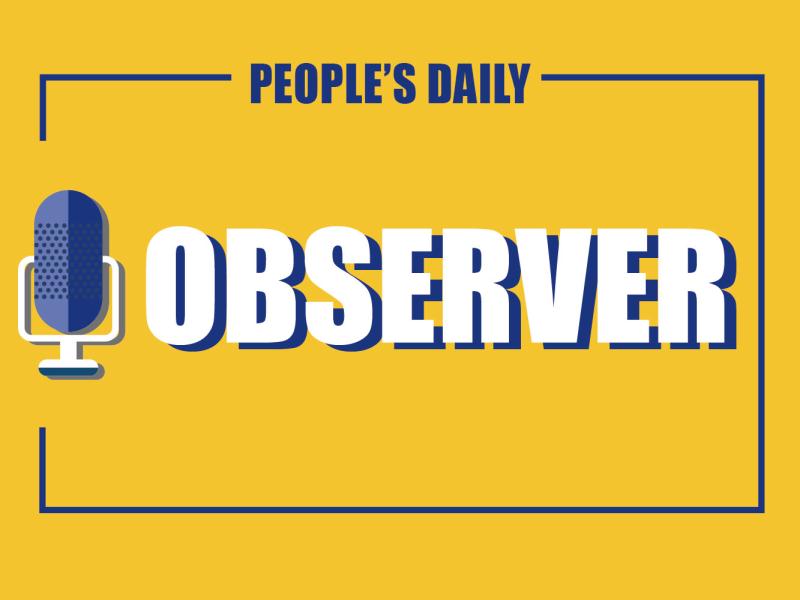
The COVID-19 pandemic has exposed the strengths and weaknesses in governance of countries across the globe.
During these times of unprecedented public health crises, good governance matters more than ever. Only with high accountability, information transparency and public trust can governments respond effectively to the pandemic.
As the Spring Festival nears, China is responding swiftly to the current pandemic to curb the spread of the virus before the country’s biggest traditional festival. To cut further transmissions amid the Spring Festival travel rush, the government has called on citizens to celebrate the festival at their places of residence without going back to their hometowns — asking them to forgo an iconic tradition of family reunions on the special day.
Recently, Heilongjiang, Hebei and Jilin, three provinces in North China, appeared in the headlines after local officials were punished for mishandling the virus response. Management loopholes were also exposed by cross-infections at hospitals and other medical facilities --two hospitals in Shijiazhuang, the People's Hospital of Gaocheng district and the traditional Chinese medicine hospital of Xinle, were publicly criticized by the joint anti-epidemic group led by the State Council for failing to implement anti-epidemic procedures.
This proves China is building a strict accountability mechanism which has been implemented effectively during the crisis. Xue Lan, a professor at Tsinghua University in Beijing, said the strict accountability mechanism fully displays the government resolve to build strong state governance and Communist Party of China discipline.
The government has also made utmost efforts to enhance information transparency in the crisis. COVID-19 media conferences and daily briefings have turned into the new norm for local government officials, frontline medical staff and public health experts in China.
Striking a balance between the protection of personal information and the public interest tests local governance. During the pandemic, epidemiological investigations have garnered widespread attention. Infection trajectories have played a vital role in locating the source of the virus and informing close contacts, but also put the privacy of individuals at risk.
That’s why Beijing, Shanghai and other regions across China have omitted the gender, age, birthplace and other private information of infected patients and focused on the key information such as the relevant places and regions of the patients. In the meantime, personal information has been well kept by authorities, demonstrating a people-centric approach in disease prevention and control.
The pandemic has accentuated the responsibility of state and local governments to provide social and economic goods and services to local residents so that public trust can be enhanced. People’s livelihoods have been interrupted by social distancing and lockdown measures, and the government has undertaken the role of effective and timely service delivery.
While the majority of local governments in China have fulfilled these delivery duties during the crisis, the Tonghua city government in Northeast China’s Jilin Province has been exposed as suffering a governance deficit. With 205 confirmed COVID-19 cases and 74 asymptomatic cases as of Wednesday, the city failed to deliver food and supplies to some locked-down residential communities in a timely manner.
The lack of sustenance forced many local netizens to seek help on social media platforms, prompting the local government to take immediate action. On Sunday, Jiang Haiyan, deputy mayor of Tonghua, apologized for the inefficient supply delivery at a news briefing and distributed 113,024 packages of vegetables to residents two days after.
What happened in Tonghua once again reminded local governments to prioritize public interest and concerns. Good governance should mitigate the pandemic while lessening the impacts of the virus on people’s livelihoods. Governments should always make reasonable judgments of their capacity to tackle emergencies and mobilize resources.
The Chinese government has been resolute to modify its practices based on the epidemic situation, drawing on last year’s experiences in responding to the crisis, while allocating more resources and cultivating proactive frontline medical staff. Compared with the poor US management of the virus, central to China’s control of the pandemic is enhanced and well-adjusted governance. On top there is state governance to mobilize resources and command the country in the fight against the virus. Meanwhile local governance must meet real-time challenges.
Once again, China's experience has highlighted the essential role of good governance in the fight against COVID-19. The keys to saving lives are responsible governments, transparent responses and active public engagement.


